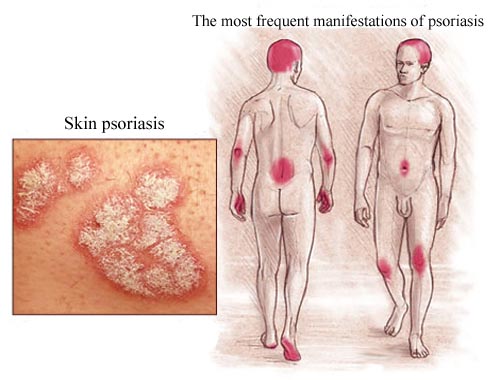Psoriasis
Psoriasis is a skin disease that causes itchy or sore patches of thick, red skin with silvery scales. You usually get them on your elbows, knees, scalp, back, face, palms and feet, but they can show up on other parts of your body. A problem with your immune system causes psoriasis. In a process called cell turnover, skin cells that grow deep in your skin rise to the surface. Normally, this takes a month. In psoriasis, it happens in just days because your cells rise too fast. Psoriasis can last a long time, even a lifetime. Symptoms come and go. Things that make them worse include:Infections: Stress; Dry skin; Certain medicines; Psoriasis usually occurs in adults. It sometimes runs in families. Treatments include creams, medications and light therapy. Mild and limited psoriasis is treated with topical corticosteroids, tar preparations, vitamin D, and retinoids. Moderate to severe and-or extensive psoriasis may require phototherapy, oral retinoids, methotrexate, cyclosporine, systemic corticosteroids, or biologic agents.
